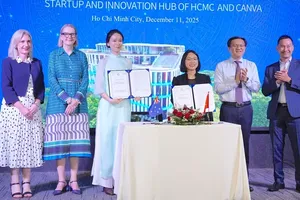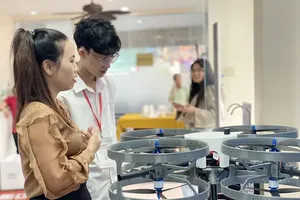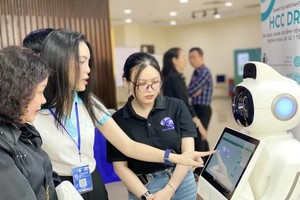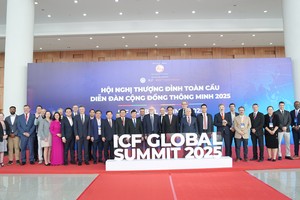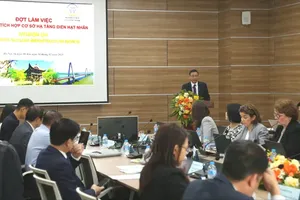
Close connection among universities
According to Associate Professor Dr. Pham Xuan Da, Head of the National Office in the Southern Region, the trend of innovative startup obviously possesses more advantages compared to the traditional tendency of starting a business, accounting for more than 59.6 percent of the surveyed people. The former trend depends on cutting edge technologies or new business models, and thus has its own market segmentation as well as impressive growth. Therefore, fostering these activities while creating more connections among startup-supporting organizations is a must, along with hosting programs to improve the ability for startup people.
“The startup community does need specific products that are globally competitive,” commented Dr. Pham Xuan Da.
As said by Mr. Nguyen Anh Thi, Director of the Software Park under the Vietnam National University – Ho Chi Minh City, universities play a great role in the startup ecosystem since this is the place to provide the capable human resources, technological solutions, necessary facilities and laboratories for startup people to approach state-of-the-art technologies.
However, only 2 – 3 percent of all students in universities have startup plans, and the proportion that truly carries out those plans is even lower.
Ms. Nguyen Phu Hoa, Director of the Center for Technology Business Incubation under Nong Lam University – Ho Chi Minh City, shared that there was a dire need of sufficient funds to support startup businesses and students in the process of piloting new products, of incentive policies on quality testing expenses, and of special commissions for those products when being launched in supermarkets or shops.
All delegates of the conference reached the consensus that startup ecosystems in the Southern region, especially in Ho Chi Minh City (HCMC) are very promising. If universities are able to encourage their own students and lecturers to join in startup activities, these systems will reap even more impressive success.
Tremendous boost for startup activities
Lately, the government has paid much attention and issued specific policies to foster startup activities. In particular, it has introduced the Project 844 to support the national startup ecosystem or the Project 1665 to aid students to startup.
HCMC alone has organized various startup activities and formed supporting centers for startup people or investment funds. All are gradually contributing to boosting the startup spirit in the community.
However, according to Mr. Huynh Kim Tuoc, CEO of Saigon Innovation Hub (under the HCMC Department of Science and Technology), despite the great number of activities held citywide, the startup community does lack a clear guidance from major businesses, which thoroughly understand all the needs of the current market. A product order from those giants will save startup people great time of surveying the demands of consumers while innovative products are still highly welcomed for they meet the needs of buyers.
Another issue is the implementation of incentive policies is quite slow. There is not any advantageous mechanism for investment into startup businesses or withdrawing capital from them. The commercialization of innovative products are not truly effective to encourage people to participate in startup activities.
It is necessary, then, to improve related policies and the trading environment so that startup people find it easier to approach the targeted market, to improve the quality of the human resources, to train the business spirit and startup culture. In other words, startup businesses cannot be considered similar to normal ones.
Dr. Pham Xuan Da pointed out various limits in the connections between scientists and businesses or the commercialization process. In other countries like Finland, companies normally raise an issue and order a solution from scientists via contests, leading to the creation of practical products and the formation of various corresponding startup businesses. Vietnam should do the same.
| The survey on startup needs in the Southern region and HCMC showed that there were 104 demands from 78 individuals (accounting for 75 percent) and 26 organizations (25 percent). Surveyed people are students (making up 19.4 percent), independent business people (43.9 percent), startup businesses (27.6 percent), and re-startup businesses (9.2 percent). |

